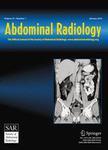版权所有:内蒙古大学图书馆 技术提供:维普资讯• 智图
内蒙古自治区呼和浩特市赛罕区大学西街235号 邮编: 010021

作者机构:PET Engn Coll Vallioor India Universal Coll Engn & Technol Vallioor India
出 版 物:《ABDOMINAL RADIOLOGY》 (Abdom. Radiol.)
年 卷 期:2025年
页 面:1-31页
核心收录:
主 题:Medical CT images Pancreatic tumor classification Deep learning (DL) Multimodal imaging Remora optimization algorithm Cascade convolutional neural network
摘 要:Computed Tomography (CT) imaging captures detailed cross-sectional images of the pancreas and surrounding structures and provides valuable information for medical professionals. The classification of pancreatic CT images presents significant challenges due to the complexities of pancreatic diseases, especially pancreatic cancer. These challenges include subtle variations in tumor characteristics, irregular tumor shapes, and intricate imaging features that hinder accurate and early diagnosis. Image noise and variations in image quality also complicate the analysis. To address these classification problems, advanced medical imaging techniques, optimization algorithms, and deep learning methodologies are often employed. This paper proposes a robust classification model called DeepOptimalNet, which integrates optimization algorithms and deep learning techniques to handle the variability in imaging characteristics and subtle variations associated with pancreatic tumors. The model uses a comprehensive approach to enhance the analysis of medical CT images, beginning with the application of the Gaussian smoothing filter (GSF) for noise reduction and feature enhancement. It introduces the Modified Remora Optimization Algorithm (MROA) to improve the accuracy and efficiency of pancreatic cancer tissue segmentation. The adaptability of modified optimization algorithms to specific challenges such as irregular tumor shapes is emphasized. The paper also utilizes Deep Transfer CNN with ResNet-50 (DTCNN) for feature extraction, leveraging transfer learning to enhance prediction accuracy in CT images. ResNet-50 s strong feature extraction capabilities are particularly relevant to fault diagnosis in CT images. The focus then shifts to a Deep Cascade Convolutional Neural Network with Multimodal Learning (DCCNN-ML) for classifying pancreatic cancer in CT images. The DeepOptimalNet approach underscores the advantages of deep learning techniques, multimodal learning, and cascade architect